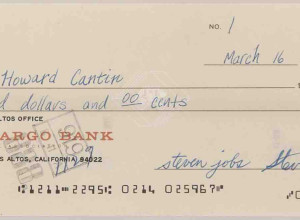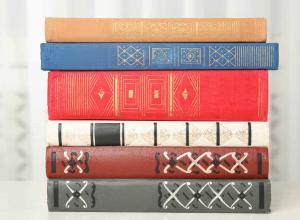No One Knows My Name
Of the dozens of titles on my bookshelves that deal with great book collectors of the past, not one deals exclusively with great women book collectors.
I find this puzzling. Certainly there is no lack of great femmes bibliophiles about which an author could write. Aside from the well-known aristocratic and royal women book collectors of centuries past (Margaret of Flanders, Jeanne de Laval, Catherine de' Medici, Frances Egerton, etc.), there are any number of other women who also have been great book collectors. Within our own day, Estelle Doheny and Mary Eccles come immediately to mind. As does Carol Fitzgerald.
And Olive Percival.
Who?
Few modern book collectors are likely to be familiar with Olive Percival, even though her collection of children's books is one of the foundation collections of UCLA's own notable collection of such books. In truth, it is only through a serendipitous encounter with Ingrid Johnson's MA thesis about Percival that your correspondent became acquainted with this extraordinary woman.
Olive May Graves Percival was born in a log cabin in 1868 in Sheffield, Illinois. In 1887, she and her mother moved to Los Angeles, where Olive later became prominent (as a "writer, photographer, gardener, artist, and bibliophile") in the so-called Arroyo Culture, a southern California branch of the Arts & Crafts movement. Although employed as a lowly insurance clerk for over three decades, her income--supplemented by the occasional published article or book--was sufficient for her to amass a private library in excess of 10,000 volumes.
Lawrence Clark Powell, no mean collector himself, commented that [i]n spite of an income limited to her clerk's earnings and from the occasional sale of articles, this woman...collected beautiful things so assiduously that, after her death, it took an appraiser two weeks to inventory the contents of her cottage.... What a pity that she lacked the wealth and the leisure of a Huntington or a Morgan.
An even greater pity was the lack of respect accorded Percival's collection after her death in 1945. Her entire library was sold for an outrageously paltry sum. Because the bookseller who bought the collection thought its children's books (527 volumes) would make a nice benefaction for his son's alma mater, UCLA wound up with a truly remarkable foundational collection. (Some 20% of the titles--the publication dates range from 1707-1914--are chapbooks.)
Percival did not collect only books on her insurance clerk's income. She also collected "hats, dolls, daguerreotypes, silver, textiles, quilts, fans, bookplates, Lalique, and Oriental art." In many ways, she very much lived the credo of the Arts and Crafts movement, as she herself noted in a diary entry: [s]ometime we shall perceive the need of a fitting background for everyday life and be willing to devote as much time to the intelligent arrangement and management of the place we call home as is given without a protest to bridge or the last best-seller or embroidery or the planning of some self adornment....
I have been able to locate only two books that Percival published during her lifetime--Mexico City: An Idler's Notebook (1901) and Leaf shadows and rose-drift: being little songs from a Los Angeles garden (1911). (Two more books were published posthumously--Yellowing Ivy [1946] and Our Old-Fashioned Flowers [1947]. Most of Percival's published works were articles for periodicals, although she also occasionally penned stories for books like From the Old Pueblo and Other Tales.)
In 2005, Percival's manuscript The Children's Garden Book (depicted above) was published as part of The Huntington Library Garden Series. The Huntington Library holds "Percival's diaries, more than 700 of her photographs, and three book manuscripts...."















